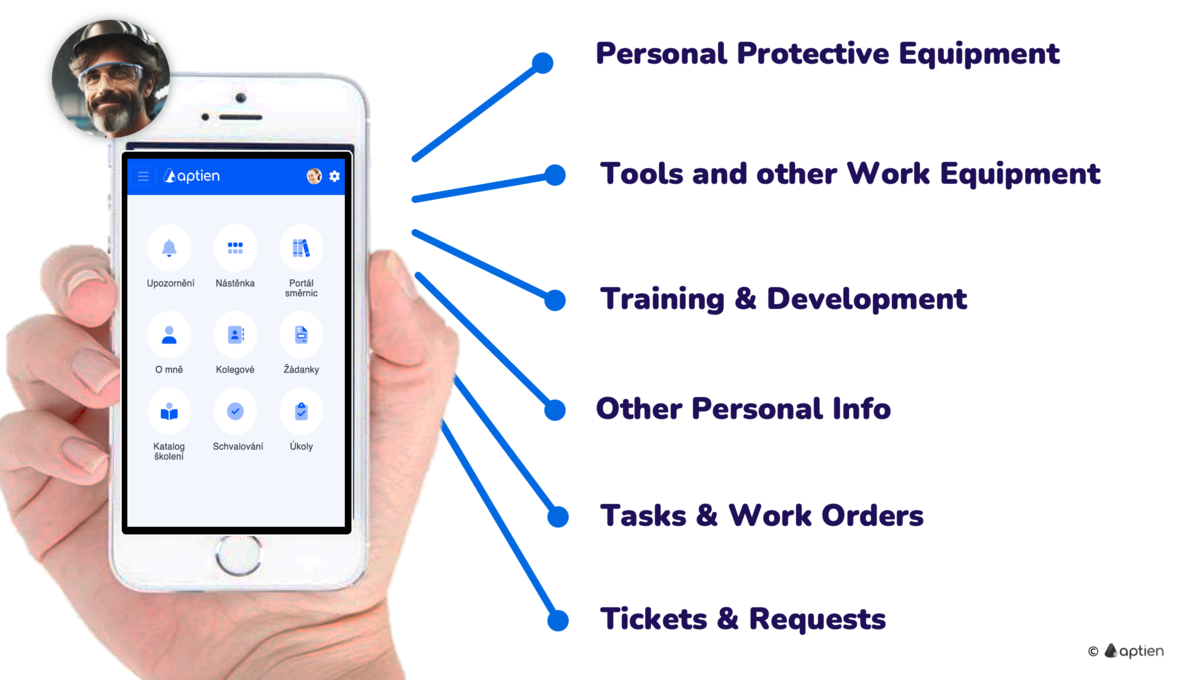Blue-collar workers is a term for workers who perform manual labor. Many blue-collar jobs require training, skills, and a high degree of qualification. You can find many blue-collar jobs that require qualified employees with specialized training. Ensuring workplace safety is also important in most blue-collar jobs.
Qualifications, Training, and Work Equipment for Blue-Collar Professions
- Many blue-collar jobs require highly specialized skills or qualifications
- Blue-collar workers often work with tools, machines, instruments, and equipment that require training
- Qualification and training are also required for health and safety reasons (OHS)
Examples of Blue-Collar Workers in Small and Medium-Sized Businesses
- Manufacturing: Factory worker, crane operator, welding specialist
- Maintenance: Maintenance technician
- Construction: Construction technician, construction equipment operator
- Energy: Technician, electrician
- Electrical installation companies: Service technician, installation technician
- Agriculture: Farm worker, agricultural machinery operator
Effective management of blue-collar workers
Effective management of blue-collar workers in small and medium-sized businesses (SMBs) encompasses several critical areas: tracking qualifications, issuing and managing personal protective equipment (PPE), and providing comprehensive training. Beyond these, fostering a safety-first culture and leveraging modern technologies are essential for ensuring compliance, enhancing productivity, and safeguarding employee well-being.
Tracking Qualifications and Certifications
- Maintaining up-to-date records of employee qualifications is vital.
- This includes documenting certifications, licenses, and training completions.
- Regular audits ensure that employees are qualified for their roles and help identify when renewals or additional training are needed.
Issuing and Managing PPE
- Proper PPE management involves conducting hazard assessments to determine necessary equipment, training employees on correct usage, and maintaining records of issuance and inspections.
- This ensures compliance with safety regulations and protects workers from potential hazards.
Providing Comprehensive Training
- Training programs should be tailored to the specific needs of blue-collar workers, focusing on practical skills and safety protocols.
- Incorporating learning and on-the-job training can enhance retention and applicability.
- Regular refresher courses help keep safety practices current.
Cultivating a Safety-First Culture
- Beyond compliance, fostering a culture that prioritizes safety encourages proactive behavior among employees.
- Recognizing and rewarding safe practices, encouraging open communication about hazards, and involving workers in safety planning contribute to a more engaged and responsible workforce.
How Aptien Supports Blue-Collar Management
- Tracking Mandatory Training Dates: Ensure all team members complete required training on time, maintaining compliance and enhancing safety.
- Monitoring Work Equipment and issuing PPE: Keep track of maintenance and replacement schedules for work equipment and personal protective equipment (PPE) to ensure everything is in optimal condition.
- Task Management: Efficiently assign, track, and manage tasks to boost productivity and ensure timely completion of projects.
- Team Capacity Overview: Gain a clear view of team availability and workload to optimize resource allocation and prevent overburdening staff.
Industries Employing Blue-Collar Workers
Blue-collar workers are essential in various industries, including:
- Factories and production lines
- Manufacturing and maintenance
- Construction sites
- Power operations and electricity generation
- Mining and food processing
- Oil field work and recycling
- Agriculture and general maintenance
